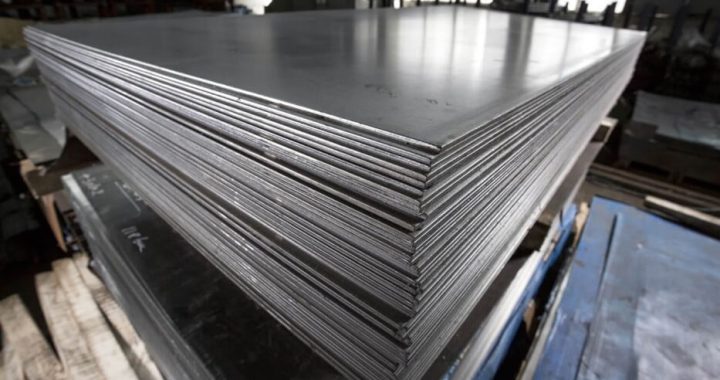When it comes to material selection for metal fabrication projects, the choice between stainless steel sheets and aluminium sheets is crucial. In this blog, Ezimetal sheds light on the distinct properties, advantages and limitations of both materials. Understanding the pros and cons of steel and aluminium sheets is essential for informed decision making in diverse applications, ensuring optimal performance and cost effectiveness.
Properties of Stainless Steel Sheets
Stainless steel metal sheets, renowned for their strength, durability and corrosion resistance, are a staple in the metal fabrication industry. The robust nature of steel makes it ideal for load-bearing structures, providing a solid foundation for various applications. The corrosion resistant properties of stainless steel metal sheets further enhance their suitability for projects where exposure to the elements is a concern.
Advantages of Steel Sheets
Steel mesh sheets boast a high strength-to-weight ratio, making them a preferred choice for structures that demand both durability and efficiency. Their inherent fire resistance adds another layer of safety in construction. Additionally, steel sheets are recyclable, contributing to sustainable practices in metal fabrication. Examples of applications where steel sheets excel include stainless steel sheets for filtration systems and stainless steel metal sheets for architectural elements.
Limitations of Steel Sheets
Despite their strengths, steel sheets have limitations. Susceptibility to corrosion, potential for rusting and higher initial costs are factors that must be considered. To mitigate these drawbacks, proper coatings and maintenance practices are essential, ensuring longevity and sustained performance in challenging environments.
Properties of Aluminium Sheeting
In contrast, aluminium sheeting is characterised by its lightweight nature, corrosion resistance and malleability. These properties make aluminium mesh sheets suitable for applications where weight is a critical factor, such as in aerospace or automotive industries. The corrosion-resistant feature of aluminium is advantageous in projects exposed to moisture or harsh weather conditions, while its malleability allows for intricate and custom fabrications.
Advantages of Aluminium Sheets
Aluminium sheets shine in applications that prioritise weight reduction. Their excellent corrosion resistance makes them a preferred choice for outdoor and marine projects. Aluminium sheets are also highly versatile in fabrication, allowing for creative and intricate designs in architecture and interior applications. Examples include aluminium mesh sheets for ventilation systems and aluminium roofing sheets for lightweight yet durable roofing solutions.
Limitations of Aluminium Sheets
While aluminium sheets offer numerous advantages, they come with limitations. Lower strength compared to steel, susceptibility to denting and higher initial costs may pose challenges in specific projects. However, advancements in alloy formulations and manufacturing processes continue to address these concerns, expanding the range of applications for aluminium sheets.
Comparison of Steel and Aluminium Sheets
A side-by-side comparison reveals that steel and aluminium sheets have unique strengths and weaknesses. Steel excels in strength and fire resistance, while aluminium shines in lightweight versatility and corrosion resistance. The choice between the two depends on project requirements, budget constraints and environmental considerations.
By knowing the differences between steel and aluminium sheets, fabricators can achieve optimal results in diverse applications, ensuring both functionality and longevity in their projects. For more information, or a custom quote, contact Ezimetal online or call 02 4987 4210.

